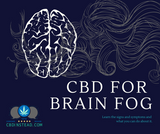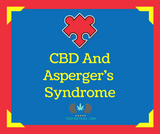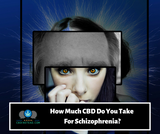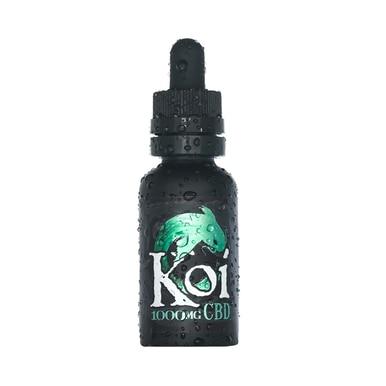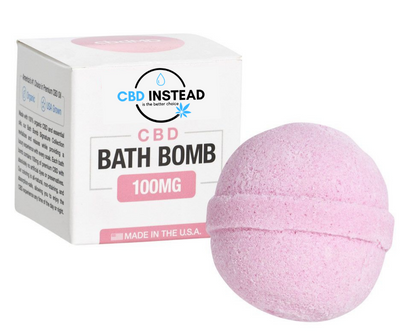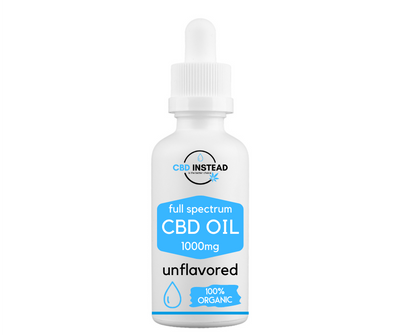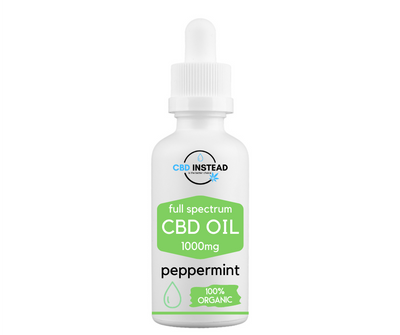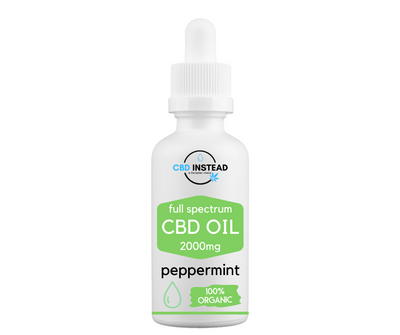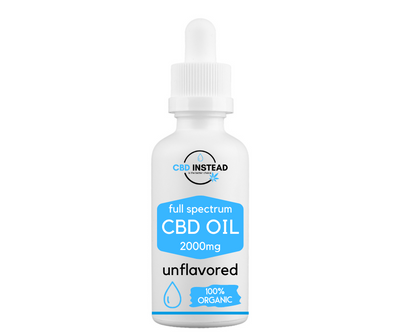Have you ever started feeling depressed when the seasons change? Not because of a memory of a trauma that happened around that time, but for some reason you can’t explain. Christmas cookies don’t taste as good to you or pumpkin spice lattes just don’t do it for you. You could be experiencing seasonal affective disorder and CBD oil may be able to help.
CBD oil may be able to help with seasonal affective disorder because of its ability to elevate your mood. By interacting with the endocannabinoid system and elevating the chemical anandamide, taking CBD oil may be able to help with the depression experienced in certain seasons.
What Is Seasonal Affective Disorder?

Seasonal Affective Disorder (SAD, no joke. Fitting, isn’t it?) is when someone experiences depression when the season changes thought to be because of the lack of light. The most popular versions of this disorder occur during autumn and winter, though there are scarce cases of it happening during the summer.
What Is The Difference Between Major Depression And Seasonal Affective Disorder?
The biggest difference between these two types of mental health disorders is that SAD is a type of depression with a reoccurring pattern. The symptoms may appear to be similar, but there are distinct differences between the two illnesses to help your doctor better diagnose your illness.
Symptoms Of Major Depression
- Feeling the depression for most of the day almost every day
- Intense feelings of hopelessness or worthlessness
- Fatigue or low energy
- Losing interest in things that used to make you happy
- Too much or too little sleep
- Changes in your appetite or weight
- Feeling irritable or agitated
- Trouble concentrating or brain fog
- Thoughts of death or suicide
Symptoms Of The Winter Pattern Of SAD
- Low energy or fatigue
- Overeating and weight gain
- Craving carbohydrates
- Social withdrawal
- Excessive daytime sleepiness
Symptoms Of The Summer Pattern Of SAD
- Poor appetite and weight loss
- Insomnia
- Agitation
- Anxiety
- Restlessness
- Prone to violent episodes
How Do You Get Seasonal Affective Disorder?
The causes of SAD are unknown, but research has indicated that there are risk factors and biological clues that can help us understand who is more prone to this illness.
Risk Factors Of SAD
Gender
If you are a female, you are four times more likely to be diagnosed with this disorder than men. Researchers believe this may be because women are more prone to depressive symptoms in general than men.
Location
If you live far from the equator, SAD is more common in your location. Researchers discovered that people who experience SAD had a longer duration of their nocturnal melatonin production in the winter than in the summer. So if you are in a location that experiences winter for longer, SAD becomes more common.
Family History
Like most illnesses, both physical and mental, your family history plays a huge role in predicting how susceptible you are to SAD. If anyone in your family has had depression, you are more likely to develop SAD than someone whose family hasn’t experienced depression.
Preexisting Conditions
If you already have depression or bipolar disorder, your symptoms may worsen with the seasons if you have SAD. SAD is generally only diagnosed if the seasonal depression episodes are the most common of your symptoms.
Age
Younger adults have a higher risk of SAD than older adults. There have even been cases of children and teens having seasonal affective disorder. Researchers aren’t sure why but it may be due to a lifestyle that doesn’t have a healthy sleep schedule.
Biological Clues Of SAD
Serotonin Regulation
People who have SAD may have a problem regulating the neurotransmitter serotonin which is involved in your mood. People with SAD have 5 percent more serotonin transporter proteins in the winter than they do the summer. Higher transport proteins leave less serotonin at the synapse because the function of the transporter is to recycle the serotonin back into the pre-synaptic neuron.
Melatonin Production
People with SAD might be overproducing the hormone called melatonin. This hormone is increased in darkness and helps to regulate sleep. When the daytime becomes shorter in the winter months, the melatonin production increases. This can leave people to feel lethargic, sleepy, and can disrupt their circadian rhythm which is our body’s clock that tells us when to sleep.
Vitamin D
People who have SAD may also produce less Vitamin D. During the winter time the sunlight is out for less amount of time giving us less time to soak up the rays. Not having enough Vitamin D may be associated with significant depressive symptoms.
How Do You Treat Seasonal Affective Disorder?

There are four major types of treatments for SAD. Some people have found success in just one while others may have to try out a few. If you think you have SAD, talk to your doctor about it. They can go over these treatment options with you, and you guys can figure out what works best for you together.
Light Therapy
Light therapy is a popular treatment option for SAD because it uses artificial light. When doing this type of therapy, you are usually sitting close to a “lightbox” and soaking in the artificial rays on a daily basis. This type of treatment has been around since the 80s, and the idea is to replace the diminished sunshine of the fall and winter months.
Psychotherapy
Certain psychotherapies, such as cognitive behavioral therapy (CBT), have shown to be effective in treating SAD. Psychotherapy may also offer long-term benefits that light therapy can’t offer. These types of therapies focus on the root of the problem and help you identify negative thoughts and help you learn how to replace them with positive ones. This type of therapy can also help you learn to identify activities that are fun and engaging to help you cope with the winter.
Vitamin D
Studies have shown that taking Vitamin D is very successful in helping with symptoms of seasonal affective disorder. Though, researchers believe that taking Vitamin D alone will not make the symptoms of SAD go away, which is why it is often coupled with a type of therapy or another medication.
Medication
Medication can be used alone and be successful or used in tandem with other types of therapy. Selective Serotonin Reuptake Inhibitors (SSRIs) are what doctors prescribe for SAD along with bupropion which is another anti-depressant approved by the FDA.
Like most medications, there are risks to side-effects when taking SSRIs. You may find that you have to try several different kinds until you land on one that feels just right. Many people are turning to CBD oil to help with their depression because of the lack of side-effects and evidence that it may be able to help faster than commonly prescribed medications.
What Is CBD?
Cannabidiol (CBD) is a chemical that comes from the cannabis plant. Unlike the chemical THC, this chemical doesn’t get you high at any dose. Unlike other medications, CBD oil is non-addictive and does not have a reported lethal dose. This chemical works so well in our body because it interacts with our endocannabinoid system.
What Is The Endocannabinoid System
You know how when you get a paper cut, your wound gets itchy and eventually scabs over? This is your endocannabinoid system sending immune cells to fight any pathogens and causing blood clots, so you don’t bleed out. The endocannabinoid system’s job is to make sure that everything is running smoothly in the body and you are well regulated.
CBD interacts with this system by elevating chemicals, stimulating certain receptors, and opening pathways in the brain making for easier travel. The chemicals that are elevated are called endocannabinoids, and they work by binding to cannabinoid receptors that you have all over your brain and body.
Cannabinoid Receptor And Endocannabinoids
All over your brain and body, you have cannabinoid receptors. The CB1 receptors are mainly located in your brain while the CB2 receptors are found more evenly spread throughout the body. The CB1 receptor helps to mediate neurological functions in your body such as pain, sleep, appetite, and mood. CBD elevates the endocannabinoid anandamide which binds to the CB1 receptor to help improve function. The CB2 receptor binds with the endocannabinoid 2-AG, and It helps to regulate the functions of your immune system.
CBD Oil For Seasonal Effective Disorder

CBD oil may be able to help with some of the symptoms that come along with seasonal affective disorder, the first symptom being the initial depression.
CBD For Depression
CBD oil has shown in studies to help elevate chemicals in the brain that are normally lacking in the depressed as well as help to promote neurogenesis in areas like the hippocampus, which is often damaged in people who have depression. The most exciting discovery in this study was that the rodent models began experiencing a change in symptoms in just 30 minutes.
CBD For Fatigue
CBD oil also may be able to help with your fatigue symptoms in several different ways. CBD oil is a wake-promoting agent at low doses helping you feel a boost of energy, CBD elevates the endocannabinoid anandamide which is also released when you exercise giving you energy, and CBD oil can also help promote a natural sleep cycle to get your circadian rhythm regulated.
CBD For Anxiety
CBD has also shown in studies to help with anxiety by reducing the overactivity in your brain. Anxiety can come in many forms of social anxiety, general anxiety, and even irritability and anger. These emotions come from your amygdala which is overactive in people who have depression and CBD can help calm those emotions down.
Talk To Your Doctor
If you are thinking about taking CBD oil for SAD, talk to your doctor about wanting to add this to your health regimen. If you are on any antidepressants, they could interfere with the CBD oil or vice versa. Your doctor can also help to monitor your progress to make sure that this is the right route for you to take.
How Do You Take CBD Oil For Seasonal Affective Disorder
When it comes to how you take CBD oil, it really depends what you are looking for. Do you need something that works quickly and you can sacrifice how long it lasts? Go for tinctures, vapes, or candies. If you want something that will last you all day but might take a bit longer to kick in, go for pills or edibles. If you need it to work now and all day, CBD suppositories are the best of both worlds. Check out our shop today to see what we have to offer!












